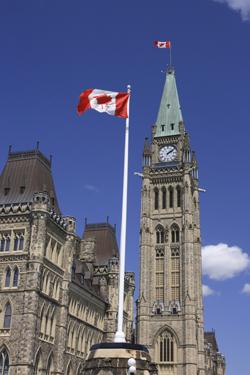
The WTO’s recent review of Canada’s trade policy pointed to its continued development of a more restrictive government procurement policy based on reciprocity. Canada began consideration of reciprocal government procurement measures in 2022. While the Canadian government develops the new policy, its province that hosts the federal government has implemented a Buy Ontario mandate. This post examines the status of Canada’s pursuit of a reciprocity-based approach to procurement, as well as Ontario’s new law.
In the WTO Trade Policy Review of Canadian policies in June 2024, its Secretariat pointed to Canada’s “significant policy shift” of replacing its long-standing "open-by-default" government procurement policy with a reciprocity-based policy. Under the “open-by-default” policy, Canadian federal procurement was generally open to all foreign suppliers and goods without regard to whether Canada had undertaken government procurement commitments in international agreements with the country in question. With reciprocal procurement policies, Canada would limit its procurement of goods and services to partners that grant Canadian businesses a similar level of access to their procurement markets.
The Canadian government detailed its reciprocity policy in a Policy Statement on Ensuring Reciprocal Treatment for Canadian Businesses Abroad. It intends to apply “a reciprocal lens” to a range of new measures, including investment tax incentives, grants and contributions, technical barriers to trade, sanitary and phytosanitary measures, investment restrictions, intellectual property requirements, as well as government procurement. The government has emphasized that the implementation of reciprocal policies would be consistent with Canada's obligations under trade agreements.
Canada began exploring reciprocal procurement measures in 2022, in reaction to the expansion of “Buy America” policies, especially the U.S. Infrastructure Investment and Jobs Act’s broad domestic preference. Global Affairs Canada and Finance Canada held consultations to obtain feedback from stakeholders on three potential approaches to reciprocal procurement policies, detailed in an earlier post. They are: (i) applying reciprocity to federal procurement based on Canada's international trade obligations; (ii) placing conditions on the participation of foreign suppliers in federally funded infrastructure projects undertaken by provinces and territories; and (iii) creating a federal set-aside programme for Canadian small businesses. Canada has also indicated it will explore with provinces and territories the possible extension of reciprocal treatment to sub-federal procurement.
Canada has not stated when it intends to adopt reciprocal measures. It might well be preparing such measures for implementation when, and if needed, to respond to future actions by the United States or other trading partners. It is unlikely that the U.S. would take new action that would prompt a retaliatory Canadian response until after its presidential elections in November. But should a second Trump administration carry-out its 2020 threat to pull the U.S. out of the WTO Government Procurement Agreement (GPA) (or even renew the threat), such measures could be applied or (perhaps serve as a deterrent).
Canada’s adoption of measures to ensure reciprocity in procurement would make it the second GPA party to do so. It would follow the example set by the European Union with its International Procurement Instrument (IPI). The IPI provides the European Commission with the authority to restrict access to EU public procurement when a trading partner denies EU goods, services, and suppliers reciprocal access to its procurement markets. The Commission initiated use of the IPI in April 2024, when it initiated an investigation of China’s procurement of medical devices.
While the Canadian federal government continues its deliberations on reciprocity measures, the Province of Ontario has implemented the Building Ontario Businesses Initiative Act, 2022. The Act mandates that public sector entities, such as hospitals and educational institutions, give Ontario-based businesses preferences in the procurement of goods and services below certain threshold values. The Act, which took effect on January 1, 2024 outlines the criteria for what constitutes an "Ontario business" and specifies the types of goods and services that are subject to this preferential treatment. It only applies to procurement below the GPA and other trade agreement thresholds.
(In 2020, Ontario had enacted a Fairness in Procurement Act that targeted state or local governments that enacted legislation or took measures that prevented Ontario suppliers from participating or succeeding in their procurement.)
Jean Heilman Grier
July 10, 2024
Related Posts
Canada Considers Procurement Restrictions
EU Uses New Trade Tool to Probe China’s Purchase of Medical Devices

